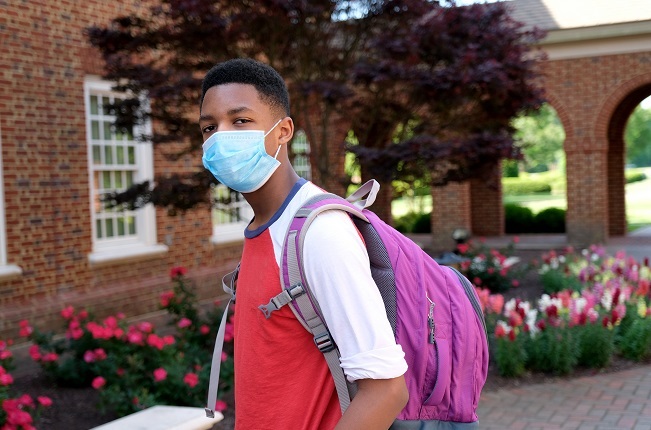
The past year has been an extraordinarily tough one.
Covid-19 has wreaked all kinds of havoc in society and – most challengingly – within families. It's been a very difficult time for parents, especially mothers, who traditionally carry the load of creating a stable home in their many roles as nurturers, cleaners, cooks, workers and teachers … you name it!
Dads, too, have had to become much more hands-on than ever, encouraging exercise, helping with homework, or organising games and just 'getting stuff done'.
I've spoken to almost a hundred parents via my online parenting courses, email or Zoom therapy sessions. Many of the stories are similar – accounts of navigating ups and downs, calming children's fears, managing teenage distress, getting to grips with new safety rules, facilitating online schooling, and imposing limits on screen-time.
But, as South African university researchers Mark Tomlinson, Linda Richter and Wiedaad Slemming have found, the hardest hit are children.
The physical side-effects
The possibility of contracting the virus is just one of the physical effects. Most worryingly, the researchers point out, during the lockdown, many children did not receive school meals on which they depended – often it was their only square meal of the day.
Malnutrition, with its known long-term damage to cognitive development, is on the increase. The researchers also share a pessimistic view of the educational fallout.
For many youngsters, not being in school for a long period meant that they were unlikely to return to school at all; and for many of them who have no data (and so, no digital access), there will be no 'home schooling'.
The emotional toll
In addition to the physical effects of Covid-19, children have the highest risk of experiencing the indirect adverse effects of the pandemic – brought about by lockdown, isolation and quarantine.
They are especially vulnerable to Covid-related fear, anxiety, depression, altered family and social relationships and even post-traumatic stress.
Why are children so much at risk?
Because 20% of deaths occur amongst people over 65 years of age, many children are losing beloved grandparents and older relatives, and many will lose their primary caregiver.
The researchers point out that children depend on parents for health care, food, protection from harm, opportunities to learn, and love and affection – these things comprise nurturing care.
The ability of families to provide nurturing care depends on "facilitating environments", which are made up of many things – the availability of work, adequate housing, health care, social security and supportive laws.
As children develop, sources of nurturing care extend to include the wider family network, childcare workers, teachers, community members and, very importantly, friends and peers.
Children develop resilience through contact with supportive adults beyond the household, such as mentors, extended family and their teachers.
Lockdowns, isolation, the closure of schools and separation from friends interrupt "the usual balancing of adverse and protective experiences that enable children to cope".
Read: Experts advise parents how to help children with pandemic anxiety
Youngsters experience increased insecurity and fear when there is no mediating reassurance of confident adults and food-secure environments.
Lockdown also prevented the informal learning that occurs in children's interactions with teachers, coaches, mentors and friends – and networks of friends are especially important for teens.
Research has also highlighted the long-term adverse consequences on teens who’re living with withdrawn or depressed parents. The pandemic has hit adults hard, many of whom face losing (or have lost) their jobs. Their support systems have been disrupted, leaving them vulnerable to psychological and emotional ‘lows’ and making them less equipped to handle the distress of their teens.
Also read: Local expert advises parents on the psychological impact of Covid-19 on children
On the other hand, teens who experience the nurturing care of family and friends, and who live in environments that meet their basic needs, have enormous reservoirs of resilience. Preserving family well-being will help to keep children and teens to remain developmentally on track.
"It is no hyperbole to state that the future well-being of our societies depends on the enabling environments we create and the nurturing care we provide for children today and across their life course," say the researchers.
Now more than ever, mothers need to step up to help their kids cope with a whole new and challenging way of life. As a mother, I believe that one of the things you can do is encourage acts of kindness.
I've witnessed heart-warming gestures – kids making masks for underprivileged schools; donations of blankets and food to animal shelters; data collection for needy teachers; and huge food drives. It’s also important to check in with your kids.
Ask them: "What is going well, what isn't, and what is inspiring you today?"
Now is an ideal time to encourage "antifragility". Tough times grow character and encourage better attitudes. Digging deep can grow new skills and creative solutions.
There are always new insights to be gained.
So, despite the unprecedented challenges, I believe that kids and mothers (and dads) can get through this difficult time.
Megan de Beyer is a psychologist and teen parent expert. Her book, "How to Raise a Man" and her online conscious parenting course have helped thousands of mothers globally, to raise healthy young men through the difficult teenage years.
Chatback:
Share your stories and questions with us via email at chatback@parent24.com. Anonymous contributions are welcome.
Don't miss a story!
For a weekly wrap of our latest parenting news and advice sign up to our free Friday Parent24 newsletter.




 Publications
Publications
 Partners
Partners











